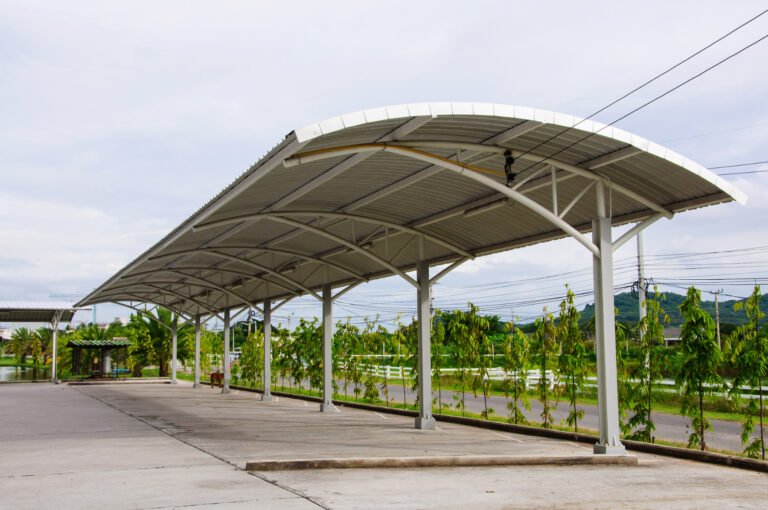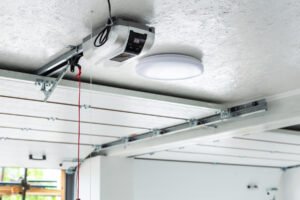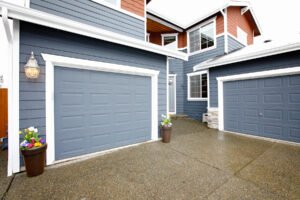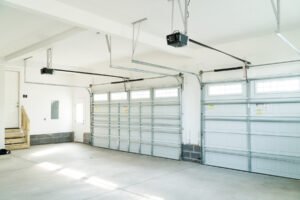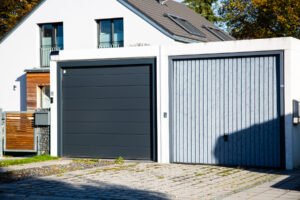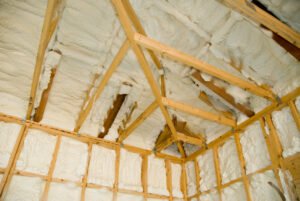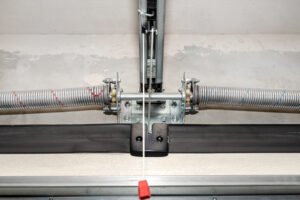The ever-expanding land problem and the plunging F.S.I has certainly robbed us of large driveways and parking services. And, if you have already converted your existing garage to a workshop or a crafts area, you might not have the space to park your vehicle and might need a new garage.
But building a new garage space is expensive, costing about $25,000 – $30,000 in total. So, what do you do with your car? Would you just leave it out in the rain? No way! What you need is one of these eight reliable and affordable garage alternatives that can convert any space into an efficient parking lot for your vehicle!
Popular Garage Alternatives to Enhance the Parking Space of Small Homes
1. Car Shed
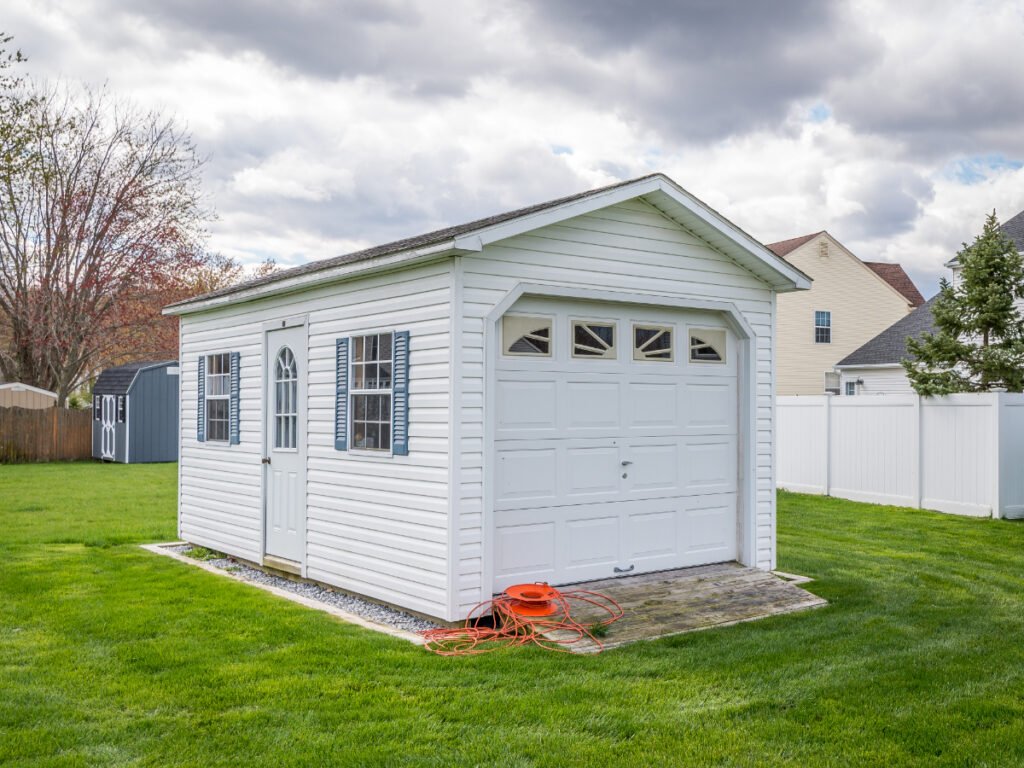
What Is It: A car shed is a prefabricated or modular parking facility, often with a lean-to or pitched roof construction that easily supports average-sized cars and trucks weighing about 2400 lbs.
A car shed is the most affordable, portable, and easily installable alternative to a traditional garage. It not only provides free parking for most vehicles but also ensures adequate storage space for tools and lawn equipment.
It has a sturdier floor that doesn’t crack, disorient, or discolor and won’t need any tedious insulation for warmth. Plus, these are more compact and lightweight than most traditional garages and use less space and cost.
Generally, most car sheds are constructed from steel, but you can use wood or recycled timber for aesthetics and a low carbon footprint. However, never use plastic or cast metal sheds as these are delicate and might melt or rust in the sun.
| Average Cost | $300 – $800 depending on the size |
| Average Lifespan | 7 – 8 years |
| Materials | Galvanized Steel, Alloyed Metal, Cedar or Teak Wood, PVC |
Pros:
- Affordable and Quick to Construct
- Do not require any parking permit or validation
- Offers good natural light and ventilation
- Can be insulated with rigid foam sprays for more warmth
- Offer additional storage space for your tools and equipment
Cons:
- Won’t keep the rodents and insects out of your garage
- Susceptible to fungi attack if not appropriately maintained
- Needs to be stained or painted to last longer
2. Carport
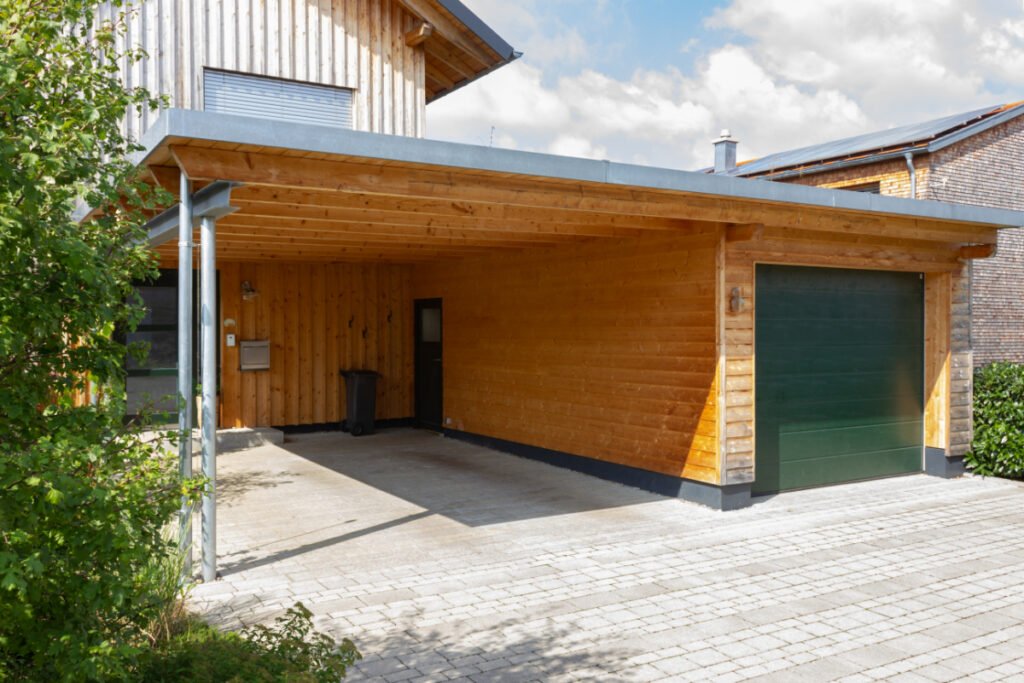
What Is It: A carport is a semi-enclosed, attached, or free-standing car shelter with a single garage wall, tubular steel framing, and a motorized vinyl or canvas top cover that protects from harsh weather conditions.
A carport has 4-pillars and a roof and is extremely easy to install, maintain and repair. It is highly durable and can be customized with different materials, colors, and textures to suit your existing home decor. Plus, it can be attached to your main exterior wall or freestanding if you require extensive lawn or vehicular parking.
And, even though a carport provides utmost security from hail and snow from the top, it does not protect your vehicle from sideways wind, rain, and pests and might soil your car instantly. Plus, it does not curate any storage space and provides little to no security from theft.
Nevertheless, it is more versatile, affordable, and flexible than traditional garages and is the best option for warm and dry states of the U.S.A.
| Average Cost | $800 – $3,500 |
| Average Lifespan | 15 – 30 years |
| Materials | Steel, Aluminum, and Polycarbonate |
Pros:
- A carport is Affordable and Easy to Erect
- Can be wide and can easily fit 2-3 large vehicles
- A carport can be used as an outdoor patio or workspace
- Doesn’t require any parking permit, code, or privacy statement for
Cons:
- Low weather resistance and Security
- Does not increase the home resale value
- Does not boost the curb appeal significantly
Add caulk or rubber seal along the perimeter of the roof to prevent any degradation or rotting due to heavy rainfall.
3. Quonset Huts
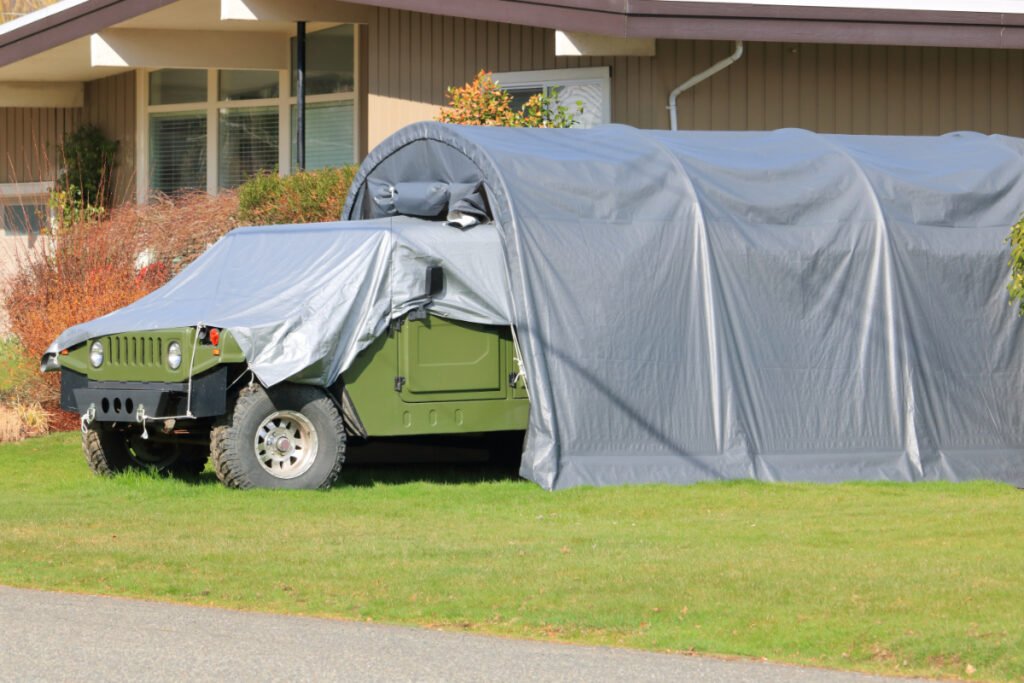
What Is It: Quonset huts are lightweight steel structures having two tapering side walls that curve and form a semi-circular cross-section at the top, thus resisting wind and snow loads in a better way.
Quonset huts are arch-shaped huts that aren’t much different than traditional garages in terms of security and insulation but miraculously save on costs, maintenance, and repair in the long run.
Additionally, these are entirely customizable and easier to erect and might withstand about 20 pounds of 18-inches of snow before they finally collapse.
These are further classified into three subtypes, and you can choose the best one for your garage depending on the weather and geographic location.
- Q-shape: This semi-circular model is the least expensive yet the most durable. It is the right tap for better climate resistance in snowy regions like Washington, Alaska, and California.
- S-shape: This model has a straight and wide 60” garage wall with a vaulted roof that eliminates water and moisture buildup in wet regions like Cleveland, Seattle, and New York.
- P-shape: P-shaped huts have straight walls and a gable roof that creates additional storage space for your tools and lawn equipment in drier regions of Dakota, New Mexico, and Nevada.
| Average Cost | $7 – $35 per square foot |
| Average Lifespan | 40 – 45 years |
| Materials | Galvanized Steel, Mild Steel, Alloyed Steel |
Pros:
- Durable, Inexpensive, and Easy to Install
- Energy-efficient and handles heavier insulation
- Customizable and Easily expandable
- Climate and Fire-resistant
- Column-free parking space inside
- Lightweight and Portable, making them an ideal parking lot for various transportation services
- Last more than traditional steel garages
Cons:
- Less headspace due to curvature
- Cannot fit ready-to-ship furniture and storage cabinets because of their shape
- Decreases storage space in general
Quonset huts are naturally ‘green-certified’ and sustainable structures, and you can even add solar panels, skylights, or rainwater collection systems on their roof to help store energy for your home.
4. Car Cover
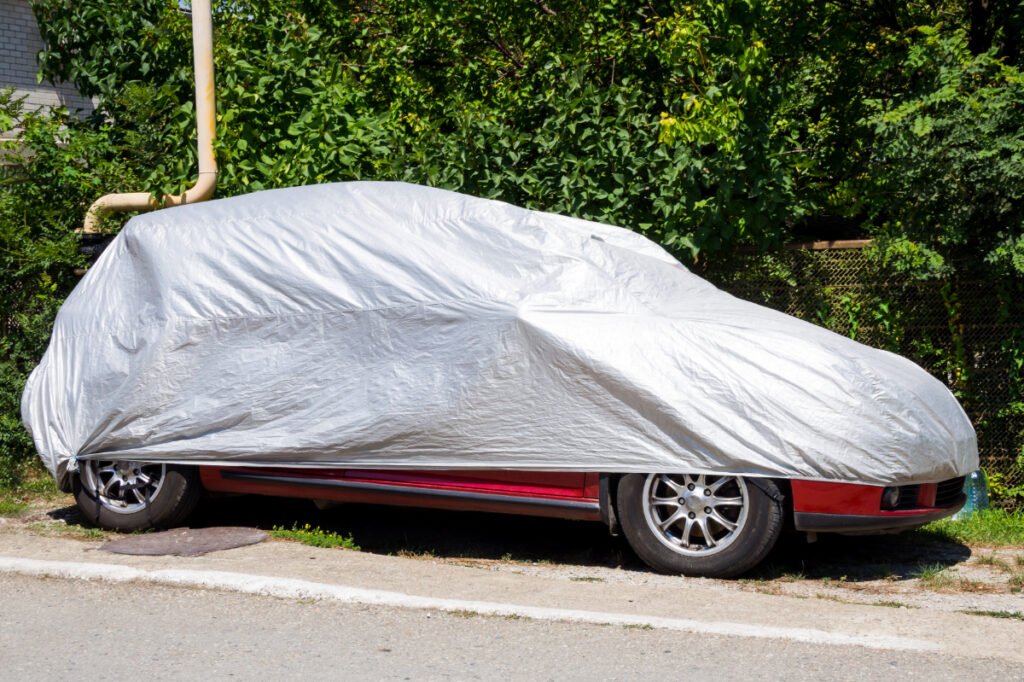
What Is It: A car cover is a tailor-made Polypropylene, Imitation Satin, or Woven Polyester fabric that protects cars from contaminants and puts a strong tensile barrier against the car surface and the harsh weather conditions outside.
A car cover is a cost-effective and durable tensile fabric that covers most vehicles’ top and side surfaces and prevents scuffing, dust, or pest attacks that might destroy the car’s paint. Moreover, car covers are easily accessible and portable, unlike traditional garages, and are perfect for any overnight parking facility by commercial transportation parking services.
However, a car cover doesn’t protect the underside and might freeze the engine, making it hard to start in winter. Hence, you could always use it in conjunction with a carport for more protection and durability.
Overall, a car cover protects the car and its paint from minor damages and rust, thus increasing the resale value extensively.
| Average Cost | $30 – $500 |
| Average Lifespan | 4 – 5 years |
| Materials | Polyester, Cotton, Cotton wool, Satin |
Pros:
- Prevents dust and keeps your car clean altogether
- Protects from minor damages, scratches, and cracks
- Secures the paint from UV radiation and prevents discoloration
- Eliminates corrosion and rusting
- Portable, Lightweight, and Washable option
Cons:
- Needs some manual effort to cover and uncover the vehicle
- Prone to theft
- Doesn’t provide protection from the bottom and can be damaged by pests
- Can hold moisture and take time to dry
Cotton, cotton wool, or polyester car covers are not water-resistant and can considerably corrode and degrade the car’s surface. Hence, using them in drier climates or under any carport is advisable.
5. Awnings
What Is It: Awnings are secondary lean-to roof-like structures that protrude along the exterior wall of a building and extend along the patio to create a rough, column-less car parking space. Additionally, these may have wood or metal framing and tensile fabric panels for a breathable space in dry climates.
Awnings protect the vehicle from hail, rain, and snow but do not secure the sides and bottoms, making it vulnerable to dust and pest attacks. Nevertheless, these are much more affordable and convenient than conventional garages and can be removed or re-installed. Plus, you can customize them to suit your decor and quickly expand them as needed.
Moreover, awnings provide a clear, columnless driveway and can effectively function as carpool or vanpool booths with some seats and storage underneath. These are portable and can be directly attached to sticks or rods, making them an excellent option for mobile parking or any compact bicycle parking on a smaller campus.
| Average Cost | $3 – $8 per square foot |
| Average Lifespan | 8 – 10 years |
| Materials | Acrylic, Synthetic, Canvas, Vinyl |
Pros:
- Affordable and Easy to Mount
- Can be retracted and pulled back when not needed
- Can be expanded to fit many vehicles
- Can be personalized to style
Cons:
- Higher upfront costs
- Doesn’t secure from the sides and the bottom
- Low wind and sun resistance
- Fragile and may fall under heavy load
Canvas or synthetic awnings are highly susceptible to rain or sun damage and might discolor easily. Hence, it’s advisable to install a weatherproof film for more protection.
6. Telescopic Tents
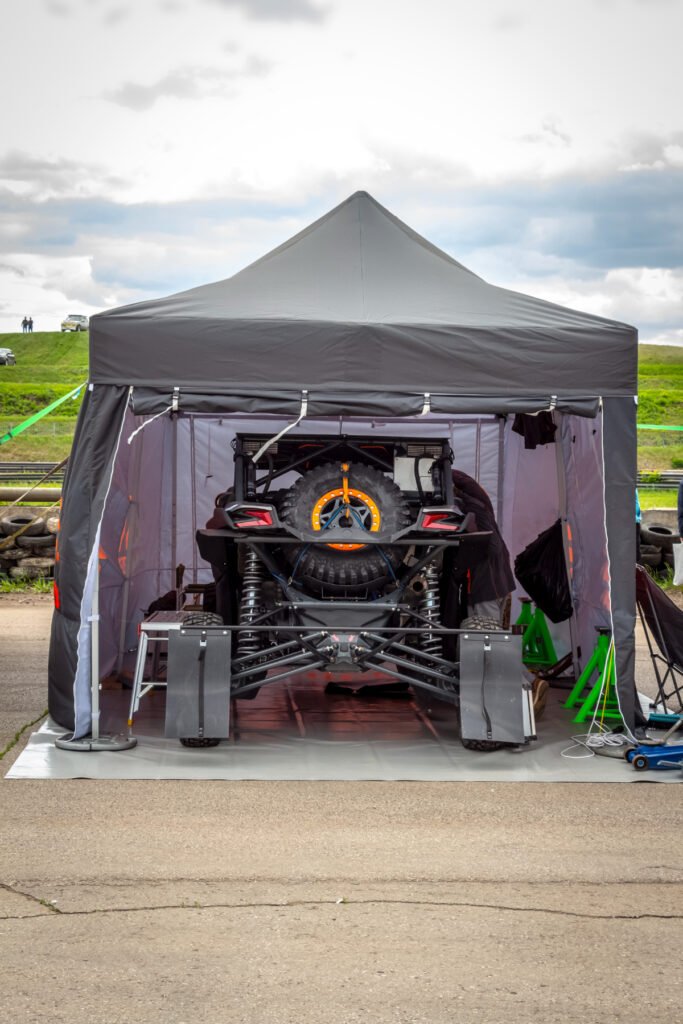
What Is It: Telescopic tents are folding, compression structures with an inlet port that stretches and retracts the tent as you want and builds a portable and convertible parking space in no time.
A telescopic tent is a great lightweight and portable option for all those traveling commuters who want a temporary, easy-to-set-up garage during their car trips. These tents are large and weather-resistant, with sufficient space to secure a car and minor storage items.
Plus, these do not require any solid foundation and resist UV rays without discoloring.
| Average Cost | $500 – $2,500 depending on the size |
| Average Lifespan | 5 – 10 years |
| Materials | Polyethylene, Sturdy Canvas, Aluminum |
Pros:
- Easy to set and mount on any type of land
- Affordable and Portable
- Protects the vehicle from pests, fungal attacks and corrosion
- Easy to replace
Cons:
- Does not provide complete moisture protection from rain and snow
- It takes some practice to mount and pull them down efficiently
- Has a complex suspension system that might make your tent unstable
Secure your telescopic tents firmly with stakes or telescopic poles to the ground, or they might blow away during heavy winds.
7. Portable Garage Kits
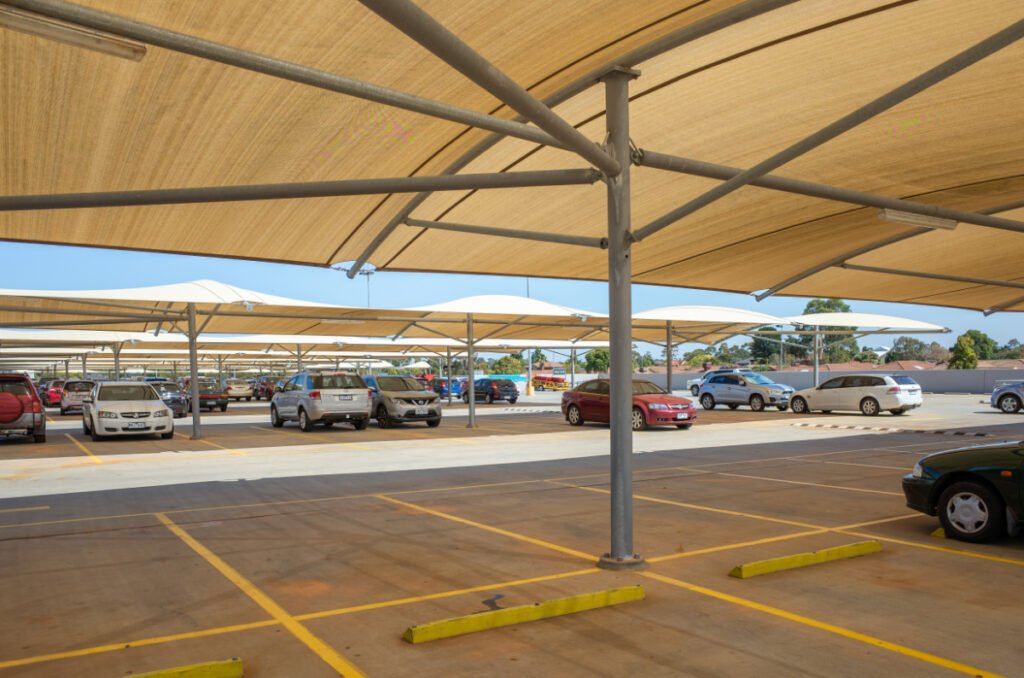
What Is It: Garage kits are assemblies of ready-to-fix tent canopies, stakes, and roofs of white vinyl, polyurethane resin, or soft metal for DIY enthusiasts or any homeowners that want to add a personal touch to their garage.
Garage kits are portable, durable, flexible, and have ready-to-mount galvanized steel frames that speed up the installation process and make a ready-to-use garage in no time. Moreover, these have special anchors and trusses that hold onto rough or sloping surfaces and provide better wind protection than any conventional garage.
Plus, these can be stitched or zipped as per choice, or you can even use smaller extension springs to fold it up like a typical roller-style door.
However, these have poor temperature control and may require reflective barriers or lighter cellulose insulation to retain heat. Plus, they might dent easily and are comparatively smaller in size.
| Average Cost | $3,500 – $6,000 depending on the size |
| Average Lifespan | 20 – 30 years |
| Materials | Metal, Wood, Vinyl, Polyurethane Resin |
Pros:
- Light-weight and Portable
- Flexible in size and Easily Expandable
- Quick Installation and Extremely Affordable
- High wind resistance
- Low maintenance
Cons:
- Poor Temperature Control
- Requires a separate source or batteries for utilities and lights
- Looks quite planar and does not enhance the curb appeal
Add a UV-resistant reinforced polyethylene fabric or vinyl top coat to wood or metal garage kits to avoid discoloration due to the sun, but retain heat simultaneously.
8. Garage Canopies
What Is It: Garage canopies are like any other polyethylene or canvas camping tents that create temporary, overnight parking for your car and use lightweight, modular designs for quick installation.
Garage canopies are simple, super convenient pegged tents with ropes and an elastic edge that fits around medium-sized cars and protects them from harsh weather conditions.
These are extremely handy and can be mounted, pulled down, or carried away as per convenience. Plus, they protect from the sun and snow and do not buckle under heavy weight.
However, they do not resist heavy winds or thunderstorms and might blow away if not secured properly.
| Average Cost | $1,000 – $2,000 depending on the size |
| Average Lifespan | 10 – 15 years |
| Materials | Polyethylene, Canvas, Aluminum, Steel |
Pros:
- Cost-efficient and easy to install
- Light-weight and Portable
- Better moisture and sun resistance
- Adapts to different land uses and doesn’t need a solid foundation
Cons:
- Poor wind-resistance
- Does not retain heat and requires additional insulation
- Cannot expand to accommodate more cars or bicycles
Garage canopies have comparatively low pest resistance, and you can add steel meshes or zipper covers or use some water seals to keep insects and bugs at bay.
Comparing Some Popular Garage Alternatives
| Parameter | Car-Shed | Quonset Hut | Carport | Car Cover | Awning | Telescopic tent | Garage Kit | Garage Canopy |
| Cost | Low | Moderate | Low | Low | Moderate | Moderate | High | Moderate |
| Life-span | Moderate | High | High | Low | Moderate | Moderate | High | Moderate |
| Storage friendly | Yes | Yes | No | No | No | Yes | Yes | Yes |
| Ease of Installation | Easy | Easy | Easy | Moderate | Moderate | Easy | Moderate | Easy |
| Maintenance | Moderate | Low | Low | Low | Moderate | Low | Moderate | Low |
| Pest Resistance | Low | High | Low | Low | Low | High | High | Moderate |
Why Do You Need Garage Alternatives for Your Campus?
Traditional garages offer storage and parking space but are highly labor-intensive to install, furnish, and maintain. They also require lots of space and accessories like garage door springs, openers, locks, and batteries to function correctly.
Garage alternatives are a standardized solution to all these problems and help any commuter create a good parking alternative with the benefits below:
- Do not Require Planning Permission: Most of the garage alternatives and short-term parking facilities are makeshift and temporary and do not require a valid permit from the city council unless they exceed 3M in overall height.
- Enhanced Weather Protection: A garage alternative prevents the vehicle’s rubber from drying out completely and protects the glass and paint from discoloration.
- Shelter Against Rain: Garage alternatives create a temporary shed, secure the vehicle, bike or car from the heavy rains and hails, and help eliminate permanent rainwater discoloration.
- Negligible Maintenance: Any garage alternative has less maintenance than any traditional garage and saves costs and labor effectively.
Do I Need Planning Permission for Alternative Garages?
No, you do not require any valid permit for building alternative garages as long as the structure does not exceed a single-story elevation and has a maximum height of less than 3M.
Is It Cheaper to Buy a Garage Alternative or Build One?
It is always cheaper to buy garage alternatives like car covers, sheds, or Quonset huts, instead of building a full-fledged garage that might cost you about $25,000 – 30,000. Alternatively, you can build a one-car carport for about $5000-6000 for enhanced durability.
What Can I Use Instead of a Garage?
You can use alternatives like sheds, carports, and awnings if you want a stationary parking space while picking portable tents, canopies, and car-covers for a make-shift, temporary parking when needed.
Garage alternatives are definitely a savior if you have a gear-packed garage and no space left for your car. These are extremely space and cost-efficient and offer climate and pest resistance on a budget. Plus, they do not require heavy foundations and adjust to sloping sites, thus reducing your overall installation and maintenance costs.
However, these garages may not offer proper insulation. In this case, you can always add secondary cellulose, fiberglass batt, or reflective panels to make these spaces warmer. Find more insulation tips in my next guide on garage door insulation!

